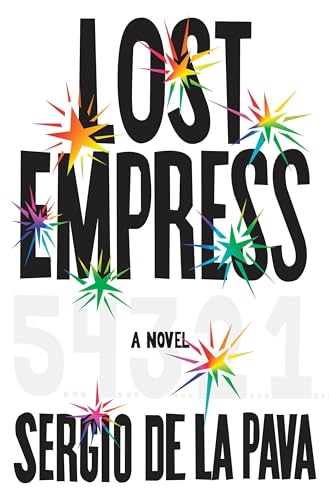In early July, I was able to sit down and interview Sergio De La Pava, the explosive, encyclopedic author who heralds a new era of the novel. A public defender in New York City, Sergio wrote his first novel on the commute to and from court cases, self-publishing the nearly 700-page A Naked Singularity in 2008. When it was republished by the University of Chicago Press, it received the PEN/Robert Bingham prize for Debut Novel. Since then, his second and third novel, Personae and Lost Empress, received similar acclaim from readers and critics alike. A writer on the periphery of the American literary scene, Sergio De La Pava’s response to art is electric, charged and ready to jolt complacency with the art form.
The Millions: What did literature mean to you before you began writing? In a public conversation with other authors, you explained that your interest in writing began at around seven or eight. In your latest novel, a young boy loses his father and, during that morbid transition from winter to spring, he discovers Emily Dickinson, titling a personal essay “Emily Dickinson is Saving My Life and I Can’t Even Thank Her,” and while I know that’s the intimate relation each reader has to literature, each of your novels contends with the moment an individual receives such profound experience with literature that they in turn become an artist. In A Naked Singularity, you’ve got the protagonist Casi working on an immense project; in Personae, we as readers discover the fragments of a man’s oeuvre after his death; in Lost Empress, it’s Nelson De Cervantes with Emily Dickinson and Dia Nouveau with Joni Mitchell. What was it for you?


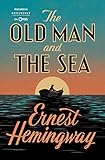 Sergio De La Pava: I think initially, my relationship with literature was something similar to what Nelson De Cervantes experiences in the terms of, I don’t want to say initial experiences with literature, but ones the ones that persist and remain memorable, it feels like a life-raft, it feels in some sense like saving your life and allowing you to continue to navigate what has been to me a very confusing and ultimately frightening experience, meaning life. I think what I depicted, with respect to Nelson, is that means by which you find nothing so blatant as guidance, but almost consolation, such that x, y, and z may be true, but it’s also true that these poems or this novel or work of art was created.
Sergio De La Pava: I think initially, my relationship with literature was something similar to what Nelson De Cervantes experiences in the terms of, I don’t want to say initial experiences with literature, but ones the ones that persist and remain memorable, it feels like a life-raft, it feels in some sense like saving your life and allowing you to continue to navigate what has been to me a very confusing and ultimately frightening experience, meaning life. I think what I depicted, with respect to Nelson, is that means by which you find nothing so blatant as guidance, but almost consolation, such that x, y, and z may be true, but it’s also true that these poems or this novel or work of art was created.
When I refer to the seven or eight-year-old thing, I was referring to that age when I spent a summer in Colombia, and I remember kind of missing the English language above all things. I remember coming across Hemingway’s Old Man and the Sea in English in my grandmother’s house. I devoured that, I distinctly remember that being the first time I made this leap between the fact that something like that exists and the realization that someone had to have created it, an individual behind this experience. It seems obvious now, but when you’re seven or eight it’s not, something like clouds, something you don’t question how it exists. But with this book, it was the first time I realized a guy like Hemingway is the reason this book exists, and it was probably the first time I remember thinking I wouldn’t terribly mind if I was the reason one of these books existed. That’s something that’s always stuck in my mind. It wasn’t so much about the artistic experience of the book, though for a 7-year-old it was intense, it was more about the realization there’s these people that identify as writers and they’re the ones responsible for books that exist or don’t exist. A lot of my novel Personae deals with that earliest question, of who gets to be called writer, who decides to dive into an activity in this more intense way than readers could experience.
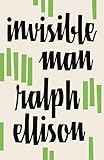 TM: In the end of that public conversation I mentioned, you were asked to give a book that summarily defines the experience of being in New York, and you give Ralph Ellison’s Invisible Man, you described the novel as being able to “marry aesthetic concerns while still having a more revolutionary message to it… all [your] novels are trying to ferment nonviolent revolution.” Each artist, I believe, must engage in what that marriage means to produce. Whether they end up producing such as work as Invisible Man is not as important for that artist as their asking how they will use literature to advance aesthetic and cultural concerns. What works or authors became for you that marriage of aesthetic and political concerns you would place your work alongside?
TM: In the end of that public conversation I mentioned, you were asked to give a book that summarily defines the experience of being in New York, and you give Ralph Ellison’s Invisible Man, you described the novel as being able to “marry aesthetic concerns while still having a more revolutionary message to it… all [your] novels are trying to ferment nonviolent revolution.” Each artist, I believe, must engage in what that marriage means to produce. Whether they end up producing such as work as Invisible Man is not as important for that artist as their asking how they will use literature to advance aesthetic and cultural concerns. What works or authors became for you that marriage of aesthetic and political concerns you would place your work alongside?
 SDLP: Do you think every novelist has political concerns? It would seem that—well, what book is popular right now?—it would seem that the author of The Marriage Plot did not have political concerns. But you are right that I pretty clearly do, right? I will say that all the aesthetic concerns that I have when I sit down to write a novel absolutely trump any political concerns. They are by far more paramount, more important. Because I am engaging in an activity where there is no reality, and nothing can exceed the aesthetic achievement. If my political concerns were paramount, then I would write an op-ed or a nonfiction book as many have done and very skillfully. In those situations, my concern would be those political realities I’m resisting in, what I’m agitating for, those options are open to everybody. When I’m functioning as a novelist, the demands of the novel have to be paramount. The reason I brought up Invisible Man is that it clearly has to me a political purpose but at no point do I feel that that political purpose overrides the aesthetic achievement of the novel. As somebody who has this whole other career that is almost all political purpose, I have to be more careful, maybe, than most, in writing the novel. I have to be more careful, that it doesn’t become a didactic piece of journalism because that’s a preexisting category I can feel free to engage in whenever I want to.
SDLP: Do you think every novelist has political concerns? It would seem that—well, what book is popular right now?—it would seem that the author of The Marriage Plot did not have political concerns. But you are right that I pretty clearly do, right? I will say that all the aesthetic concerns that I have when I sit down to write a novel absolutely trump any political concerns. They are by far more paramount, more important. Because I am engaging in an activity where there is no reality, and nothing can exceed the aesthetic achievement. If my political concerns were paramount, then I would write an op-ed or a nonfiction book as many have done and very skillfully. In those situations, my concern would be those political realities I’m resisting in, what I’m agitating for, those options are open to everybody. When I’m functioning as a novelist, the demands of the novel have to be paramount. The reason I brought up Invisible Man is that it clearly has to me a political purpose but at no point do I feel that that political purpose overrides the aesthetic achievement of the novel. As somebody who has this whole other career that is almost all political purpose, I have to be more careful, maybe, than most, in writing the novel. I have to be more careful, that it doesn’t become a didactic piece of journalism because that’s a preexisting category I can feel free to engage in whenever I want to.
TM: And you have!
SDLP: The kind of concerns that build up and overflow in my mind, that cause me to write a novel, are rarely political. They feel more philosophical or poetic. Those feel to me the driving force of the novel. The politics of it, the radical agenda or whatever you want to call it, is quite often a function of the setting where the philosophy and poetry is happening.
TM: I think that act of achieving a political statement as a result of the aesthetic work connects well to what Ellison was about. I’m interested to know which American authors, like Ellison, might’ve provided a framework to search for truth, and who you eventually had to move past to develop your own work.
SDLP: Well I don’t necessarily identify with someone because they’re American. I go by language, I go by writing in English. To me a country is essentially an invented, if not meaningless, then low-meaning thing. I don’t take particular meaning from the fact I was born in the United States. English, now that’s a different story. English colors everything that happens in the work. The language colors everything. Herman Melville, Emily Dickinson, Virginia Woolf, to name writers who wrote in English. Certainly a lot of translated works have been important to me, but those were the seminal figures, always tempered by the thought that “great, they did what they did, but it’s time for an updating.” Those are all writers who stopped writing at least 80 years ago. In a lot of ways, I think the distance of time makes those influences more useful than looking to contemporaries or colleagues or doing the same thing you are and looking for inspiration there. It’s never worked that way for me.
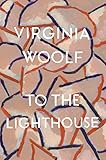 TM: So it’s not necessarily the questions proposed in say, To the Lighthouse may not provoke today; it’s that enough time has passed that you feel them worth revisiting? Do they serve greater inspiration because of their distance?
TM: So it’s not necessarily the questions proposed in say, To the Lighthouse may not provoke today; it’s that enough time has passed that you feel them worth revisiting? Do they serve greater inspiration because of their distance?
SDLP: I suppose I don’t have a good grasp by what we mean when we say “inspiration.” Everything has “inspired” me to write but that’s not the same as saying I’ve found joy in or found profitable every single thing I’ve read. Often times, I receive negative inspiration, where I say “I don’t like that, I don’t think that’s what the novel is for, that that’s how you execute a novel.” And that can be more useful than sitting there and going “well, that novel’s as close to perfection.” When you think about it, in many ways, we as humans act out with dissatisfaction a lot more often than we do with satisfaction. A lot of the times when I’m reading, I receive this dissatisfaction, a wanting, and a highly critical response, and those serve as more useful than something that is masterful. When something’s masterful, to me, it’s done. There’s nothing left to say. There’s nothing left to do in response. I often wonder: If I were insanely impressed by the majority of novels I’ve read, would I even write? I probably wouldn’t. I think it’s the opposite. Part of the reason I write is because I find modern novels so lacking.
 TM: It seems your latest novel, Lost Empress, was the attempt to bridge two very distinct styles of novel together. In a previous conversation, you used Invisible Man and Pride and Prejudice as examples of these two styles. I’m wondering, using this term of translation, how did you translate the experiences of previous novels into this work?
TM: It seems your latest novel, Lost Empress, was the attempt to bridge two very distinct styles of novel together. In a previous conversation, you used Invisible Man and Pride and Prejudice as examples of these two styles. I’m wondering, using this term of translation, how did you translate the experiences of previous novels into this work?
 SDLP: The novel is limitless, there’s more than Invisible Man and Pride and Prejudice. I think what I meant was that I was inspired to take two conceptions of the novel that seemed like they will not mix and so Invisible Man and Pride and Prejudice are two seemingly different novels in a way no other two novels could seem as different. The challenge was this: If the novel has the ability to subsume any category into its form, can you prove that by marrying these two wildly different concepts, without the infrastructure showing? That challenge can excite you, make you go “yeah, I can do that,” and that excitement can carry you for the next four years. I have a lot more freedom with that challenge than, say, translation, because there’s a hardcap to how much I decide Anna Karenina is before it no longer fits into the idea of translation. When I do this, I’m doing it with my terms and nobody’s going to tell me it doesn’t fit.
SDLP: The novel is limitless, there’s more than Invisible Man and Pride and Prejudice. I think what I meant was that I was inspired to take two conceptions of the novel that seemed like they will not mix and so Invisible Man and Pride and Prejudice are two seemingly different novels in a way no other two novels could seem as different. The challenge was this: If the novel has the ability to subsume any category into its form, can you prove that by marrying these two wildly different concepts, without the infrastructure showing? That challenge can excite you, make you go “yeah, I can do that,” and that excitement can carry you for the next four years. I have a lot more freedom with that challenge than, say, translation, because there’s a hardcap to how much I decide Anna Karenina is before it no longer fits into the idea of translation. When I do this, I’m doing it with my terms and nobody’s going to tell me it doesn’t fit.
TM: I would say that while each of your work contends with reality, Lost Empress questions what is real and how we define that. Not just translating experience but transcribing it. We have this character, Sharon, a CO for paramedics, who breaks down after decades of listening to calls in which children are maimed and assaulted. But her coworker doesn’t console her, she says “that’s as real as realism gets.” I’m wondering how you can talk about the act of writing as a series of freedoms but also have your characters confront and rebel against the tragic fictions you pit them against. Is this perhaps where you attempt to bridge the two conceptions of the novel, the fantastical reproduction of reality and reality’s strenuous subjugation?
SDLP: I’ve always had this weird sensation that the world depicted in the novel is as real as ours; it’s just a matter of perspective. I feel that the conclusions I draw from immersion in a fictious, well-done novel can easily be applied in this world, with a reality that hits us every day. I don’t make distinction, I get upset about things that happen in novels and I don’t find any consolation in being told they’re a fictitious character. When I would write Sharon’s narrative, it would upset me as much as if she were like any other person I knew in life. That’s probably not the healthiest attitude, but that’s part of the reason why I inject things that are uncontroversially true of our world, such as a Rikers Island inmate guidebook or Joni Mitchell or Salvador Dali, because the facts about them are verifiably true. Part of the reason I don’t draw distinction is because convention would have us place the fiction below reality. whereas I think that fiction should be placed alongside reality.
TM: When you say you have a visceral reaction, it’s well understood. In that public conversation, someone brought up the fate of the character Nuno in Lost Empress and you looked like you were sucker-punched, you said “well, I care a lot about him, and I’m sad that it ended.” It’s this character you spent a lot of time with, but even though you say you’re with this freedom to write the novel, your characters actively protest their existence within the novel, shouting “truth in everything!” On this idea that characters are aware of what’s happening, could you say something on where you think the novel heads in the 21st century? Throughout your work, you’re referencing pop culture and pop media such as TV, the novel Lost Empress begins with the decree “let us enter into peals of laughter,” and the opening scene is in the form of a sitcom script. Though the structure of the script disappears, the kinetic quips remain in stark contrast to the looming darkness that bridges the novel’s first and second act. I’m wondering if you did this in respect to new media that competes with the novel, or if this was an aesthetic concern.
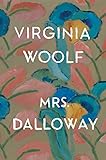

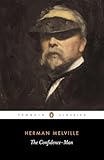 SDLP: I don’t care about the new media, I really don’t. I don’t accept that television is the new novel, that’s silly. It’s just as dumb as it ever was. I’m not competing with that stuff because I will lose, I will lose in a first-round knockout. My novels are asking that you enter into a completely different space than the one you’re in when you binge-watch Breaking Bad. I mean I watched all of Breaking Bad and The Wire and I enjoyed that but it’s not the same as when I read Mrs. Dalloway or Moby Dick or The Confidence Man.
SDLP: I don’t care about the new media, I really don’t. I don’t accept that television is the new novel, that’s silly. It’s just as dumb as it ever was. I’m not competing with that stuff because I will lose, I will lose in a first-round knockout. My novels are asking that you enter into a completely different space than the one you’re in when you binge-watch Breaking Bad. I mean I watched all of Breaking Bad and The Wire and I enjoyed that but it’s not the same as when I read Mrs. Dalloway or Moby Dick or The Confidence Man.
TM: And yet your novels interject that media constantly.
 SDLP: My novels, I hope, attempt in some way that just because you’re in the world where you read The Confidence Man or Bartleby The Scrivener doesn’t mean you have to forsake all the pleasures of a quick one-liner like you said. The narrator at the beginning of Lost Empress says “we’re gonna keep this pretty light,” and then, clearly, he fails to keep it light. Sharon’s abused, people are kept in isolation by the Grand Jury. But the attempt was there in the beginning, like a screenplay for a screwball comedy, and then reality keeps interjecting to the point where it can’t sustain. And you see there’s this thing where privileged people can keep it light, but ultimately none of us can keep it light, because this commonality of experience of that desolating experience will win out, or simply time’s up. There’s a character in Lost Empress, the Theorist, who describes two timelines: that of the reader and that of the novel. You know he’s experienced our reality because he describes the David Tyree catch, and he’s the only one who’s been in our timeline that’s also in Nuno’s timeline, so he says “this timeline that we’re in is ending,” and that’s verifiably true by the fact the novel’s ending, but that’s also true for the reader’s timeline, regardless of the world you’re in. And that’s not necessarily the most salient fact of your life, I hope not, that’s not that productive. But it’s there and it colors the events of life, in Personae especially, the fact that life is so fragmentary and fast.
SDLP: My novels, I hope, attempt in some way that just because you’re in the world where you read The Confidence Man or Bartleby The Scrivener doesn’t mean you have to forsake all the pleasures of a quick one-liner like you said. The narrator at the beginning of Lost Empress says “we’re gonna keep this pretty light,” and then, clearly, he fails to keep it light. Sharon’s abused, people are kept in isolation by the Grand Jury. But the attempt was there in the beginning, like a screenplay for a screwball comedy, and then reality keeps interjecting to the point where it can’t sustain. And you see there’s this thing where privileged people can keep it light, but ultimately none of us can keep it light, because this commonality of experience of that desolating experience will win out, or simply time’s up. There’s a character in Lost Empress, the Theorist, who describes two timelines: that of the reader and that of the novel. You know he’s experienced our reality because he describes the David Tyree catch, and he’s the only one who’s been in our timeline that’s also in Nuno’s timeline, so he says “this timeline that we’re in is ending,” and that’s verifiably true by the fact the novel’s ending, but that’s also true for the reader’s timeline, regardless of the world you’re in. And that’s not necessarily the most salient fact of your life, I hope not, that’s not that productive. But it’s there and it colors the events of life, in Personae especially, the fact that life is so fragmentary and fast.
TM: As a reader of these narratives, we can pick and choose where and when we pick up and drop off, but then what does that do for the truths of your characters? Sharon decides to remain in an abusive relationship with her husband to ensure her son’s success, a quarterback decides to suffer terminal brain damage to win a football game, Nuno escapes prison only to realize his world is ending; what makes them matter? Not in the moralistic sense you object to, but what is the saving grace for theirs and our lives by the novel’s end?
SDLP: Nuno lays this out for us at the end of the novel rather explicitly. Despite the fact there is an ending, he finds merit in all things by the fact they happened. He lays it out for us, when people say “oh, humanity’s but a speck of dust in the history of the universe,” well that’s a dumb thing to say! It’s never been about how long we’ve been around or the value of an uninhabited planet. He tackles this sense of insignificance head on because that desire to be heard is the value. Not because what we’re going to say results in x, y, and z, but because we could manage to do something. And there are people who will disagree, who say that because life has an end renders everything meaningless. That’s a view. I don’t think that’s a logically impossible view, but I don’t share that view and I don’t think anyone in that novel shares that view. Sharon decides to create meaning from her life by ensuring her son’s survival, and she could be wrong of course, but that’s for everybody to decide for themselves. That’s what we do as human beings. Why did I put a suit on today and come into my office? Because I decided that helping someone within the machine of the criminal justice system has meaning. I could be wrong, I guess, because that seems unlikely. When you experience that meaning, such as when I’m raising my two-year-old, that doesn’t feel meaningless, it just doesn’t. It feels like meaning irrespective of the entire fate of humankind.
TM: It makes me wonder about the kind of person who is satisfied by meaninglessness, or whose fear of meaninglessness is correlated to a lack of morality. These people seem to lack the experience of meaning made by living a full life.
SDLP: Right. It’s like pessimistic authors who take these works where everyone is evil and wrong and the world is mean. That’s a weird proposition, that I think is done by infantilized writers who take on this worldview and get praised for their “honesty.” But those type of people ignore the other half of humanity, like that guy who volunteers on Sundays to bathe the elderly. You’re going to tell me that that person’s evil, that their actions are meaningless? Those writers who suffuse their work with meaninglessness have to categorize and ignore the others. I feel like it is just as intellectually dishonest to find everybody good as it is to find everybody bad. Neither one feels fair.
TM: So your fiction is an attempt at something more honest to life.
SDLP: I don’t think these are optimistic works, but I don’t think they’re pessimistic works either. I’m attempting to grapple with the fact that humanity is capable of terror and greatness.
